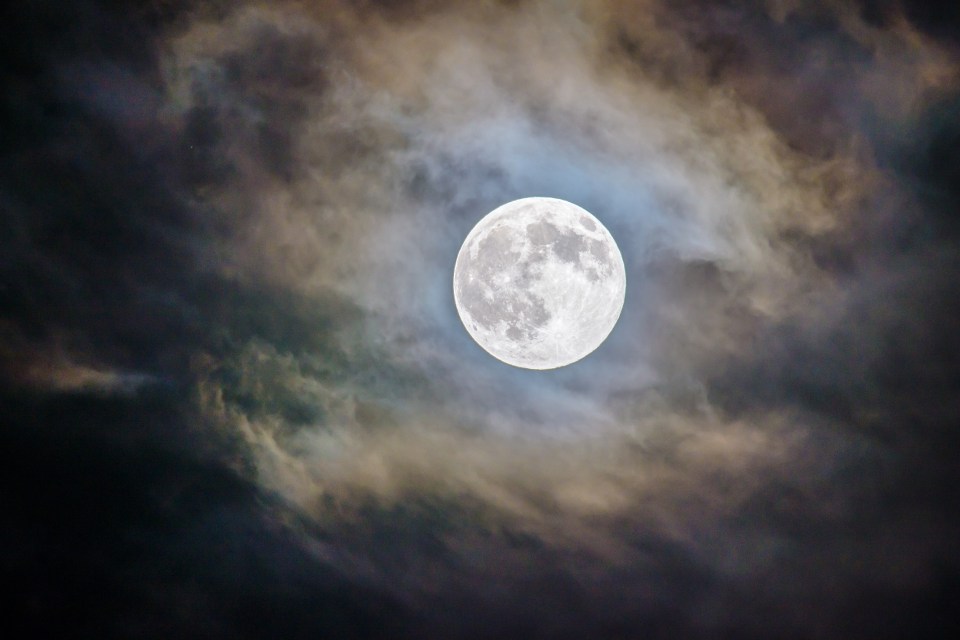What are the traits that mark a highly sensitive person?
Elaine Aron, the lead researcher on the subject of high sensitivity, writes that there are four primary markers that distinguish a highly sensitive person from a non HSP. These four elements are arranged in an acronym: DOES.
D: Depth of Processing. Highly sensitive people process things deeply. Every experience is digested slowly and assimilated into the psyche with great care. It’s why they tend to take so long to make decisions. They are going through as many possible scenarios as possible and trying hard to assure their choice is the best option available to them.
O: Overstimulation. Highly sensitive people have a slightly more vigilant nervous system than most. This means they can find satisfaction with much less stimulation. Soft music feels like a lullaby. A quiet walk is a delight. It ALSO means they can become easily over-stimulated….often by the very things other people rejoice in. Loud get-togethers in clubs? No thank you. Once overstimulated, it can feel extremely uncomfortable.
E: Emotional Reactivity. When highly sensitive people are shown a photograph of a loved one, their brains light up with recognition and a pattern that looks very much like joy. When shown an image of violence, the emotional pendulum swings to the other extreme. Highly sensitive people, therefore, appear to have a wide emotional landscape that is influenced by pretty subtle cues.
S: Sensory sensitivity. This basically means they have a sensitive sense of smell, sound, taste, etc. They pick up onto stimulus in the environment and are more affected by it than most would be. If you have ever heard a loud “BANG!” and watched as a few people jumped out of their seats…you were probably face-to-face with a highly sensitive person.
As you can imagine, these traits don’t lend themselves well to reliable sleep.
That makes sense, right?
- If we process things more deeply, that means our brains are more likely to be kept awake thinking about the events of the day.
- If we are more easily aroused and stimulated, that means something as subtle as a snore or maybe even the emotions of your sleeping partner might agitate your system enough to disrupt the potential for sleep.
- If you’re more emotionally reactive to stimulus, that means you will be more easily aroused and less easily given license to relax.
- And if you have sensory sensitivity, you probably are absurdly needy when it comes to your sleeping space. It needs to be the right temperature, the right level of dark, the right level of quiet…etc.
So what can we do about it?
The remedies most helpful for optimizing your chances of getting a good night’s sleep (or at least getting rest when sleep won’t come) boil down to three primary objectives:
- Reducing the frequency of insomnia
- Managing your system when sleep doesn’t come
- Changing your relationship to sleeplessness.
There are several remedies that might help in each category. I’ll share what I have found to be helpful for myself and most of those I work with to improve their sleep.
Reducing the frequency of insomnia.
To reduce your risk of having trouble sleeping and increase your chance of getting to sleep instead, try doing the following (listed from lowest to highest in intensity).
- Make your bedroom a sanctuary. Make sure it is the right temperature, the right lighting, the right humidity, the right smell.
- At least an hour before bed, switch to red light instead of blue light. Change your light bulbs out for red bulbs and switch your screens to night mode.
- Make sure you get at least an hour of exercise in the day time (this reduces your cortisol so that you’re less likely to be hijacked by intense stress at night).
- At night, spend a few moments (5 – 10 minutes) doing gentle movement – yoga, stretching, light walking. THEN try doing a meditation exercise or deep breathing exercise. This allows the system to calm down gradually…rather than jumping into bed and imagining the brain will shut off at will.
- You can try taking natural supplements:
- Kavinace (and Kavinace PM)
- 5HTP
- Magnesium
- L-Theanine
- Melatonin (don’t take melatonin for more than a month at a time without a break in between)
- When desperate, you can also ask your doctor about taking prescription medications. Remember, you have a more sensitive system, which means you will want to avoid taking these if you don’t need it. You’ll also want to be more careful about the dose. Options to consider include:
- Muscle relaxers
- Beta blockers
- Sleep aids
Managing your system when sleep doesn’t come.
Okay…so you didn’t get sleep despite all your valiant efforts to engage in the tips listed above. What now?
- First, accept that you feel like crap. There is no getting around it. Don’t try and pretend it’s okay when it’s not. Just accept that today is going to be a less productive day than you probably would like.
- Second, move your body. As mentioned above, exercise helps reduce cortisol (which is linked with stress). When you don’t get enough sleep, your body produces MORE cortisol to help compensate for your fatigue and keep you awake. The problem with this is it makes you even more susceptible to the effects of stress…thereby increasing the likelihood that you’ll have trouble sleeping later that night. So get out and try and move your body for about an hour (either all at once or throughout the day). It doesn’t have to be crazy exercise. Walking is enough.
- Immediately after you are done with your exercise, take a few moments to do some deep breathing and meditation. Often we think meditation is best to do at night…because we’ll fall asleep better, right? Not necessarily. Especially if you have a pattern of not sleeping. It can actually be better to do it during the day, when you’re less worried about trying to get to sleep. This, like exercise, will reduce your body’s production of stress hormones. Meditation can also offset some sleep debt. 20 minutes of meditation can help offset as much as two hours of sleep deprivation.
- Balance your blood sugar by eating every 2 – 4 hours. In each snack/meal, try to eat:
- Some protein (hard boiled egg, string cheese, nuts, seeds, legumes). Protein helps nourish your adrenal glands…which are being taxed when you don’t sleep well.
- A complex carb (whole grains, vegetables, etc.) Carbs give your body some energy. The fiber in them will also help sustain the integrity of your gut – which you definitely need.
- Slow down. Understand that you will not be as productive and make peace with that. Let people know that you are not feeling well and ask for help when you need it.
Change your relationship with sleeplessness.
This is probably the hardest one, but it’s also the most important. Much like with panic attacks, the worst part about it is not necessarily the attack, itself…but the anticipation of the next one on its way. Much the same way, we can keep ourselves awake by thinking about how badly we want sleep.
The best thing to do is start to revolutionize your relationship with sleep loss.
You can do that by:
- Understanding that you are NOT going to die. You might want to…because “rest in peace” has a nice ring to it, right? But you’ll be okay.
- Ask yourself this question: what is the kindest thing you can do for yourself right now? What would make your experience of being awake a little better?
- Build an insomnia kit. Keep things you love next to your bed. Maybe it’s a book light. Or essential oils. Maybe you have small Sudoku books you can have next to you. Whatever makes you feel more at ease.
- I highly recommend reading Sondra Kornblatt’s book “Restful Insomnia”
- Take advantage of the extra time by doing things YOU like to do. Keep in mind – you’re a highly sensitive person. Yes – that means you do best when you get sleep, because the rest is super helpful. BUT – if you’re not going to sleep, what that also means is that you have more time. You can read that book you’ve been meaning to get to. You can practice meditation the way you said you wanted to. You can write that book you always wanted to write. Treat your nights like the quasi-gift that it is. The gift of time. And in particular, it’s the gift of more time alone. In the quiet. With nothing but your thoughts as company. It doesn’t have to be a bad thing.
Having said all this, I do want to honor the fact that everyone’s experience with insomnia is unique.
What is your experience with insomnia? What tricks have worked well for you to navigate it when it hits?

